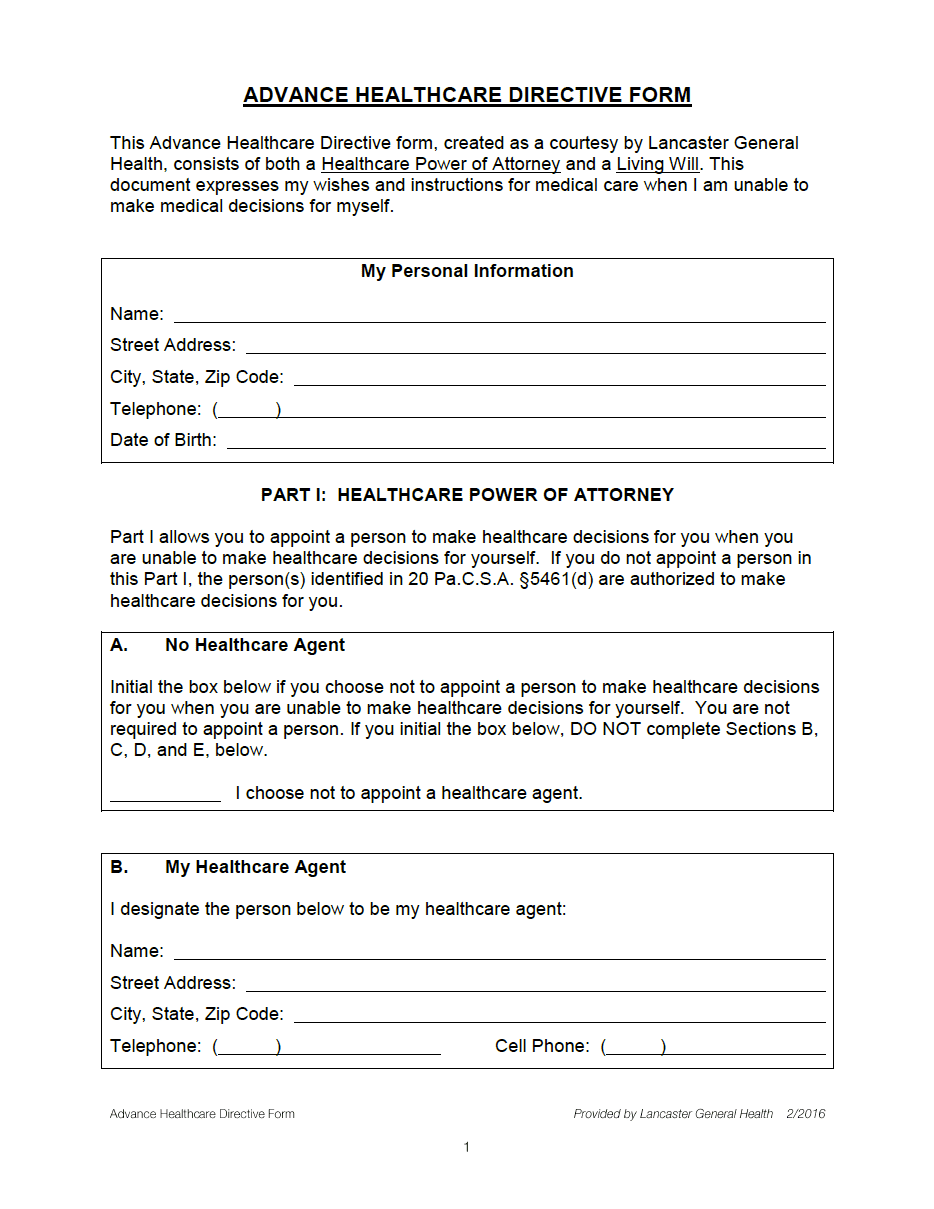Pennsylvania Advance Directive Form
A Pennsylvania advance directive is a two (2) part document used by an individual (the principal) to appoint another person (the agent) as their representative. The agent must convey the principal’s wishes to the physician and oversee their medical treatment. This form becomes effective following a physician’s confirmation of a principal’s incapacitation. It involves specific information about how a principal wants to be medically treated or where they wish to reside (i.e., hospital, nursing home, hospice, etc.).
The principal can also include whether or not they would like to donate their organs and tissues if they pass away. They do not have to complete each part of the document, although it ensures that the agent properly carries out their wishes. If the principal has not provided instructions on a particular type of treatment or care, the agent becomes responsible for making a decision on their behalf. The agent must consider the principal’s best interest and beliefs when choosing their health care.
The “living will” section of the document lists the principal’s preferences for treatment. In the form, they can accept or deny:
- Pain relief;
- Life-prolonging treatment;
- Cardiopulmonary resuscitation (CPR);
- Mechanical ventilator (breathing machine);
- Dialysis (kidney machine);
- Surgery;
- Chemotherapy;
- Artificial nutrition and hydration (intravenous or through tube feeding)
- Radiation treatment; and
- Antibiotics.
The medical power of attorney section authorizes the agent to step in and make health-related decisions on behalf of the principal. The agent can only make these decisions if the principal has not included their wishes in the form. A doctor must verify that the principal can no longer communicate their wishes before it goes into effect.
Laws: Title 20, Chapter 54
Signing requirements (§ 5442 & § 5452): Two (2) witnesses must be present when the principal signs or dates the form. If the principal cannot sign themselves (due to physical disability or another valid reason), they must be present while another person signs for them.
